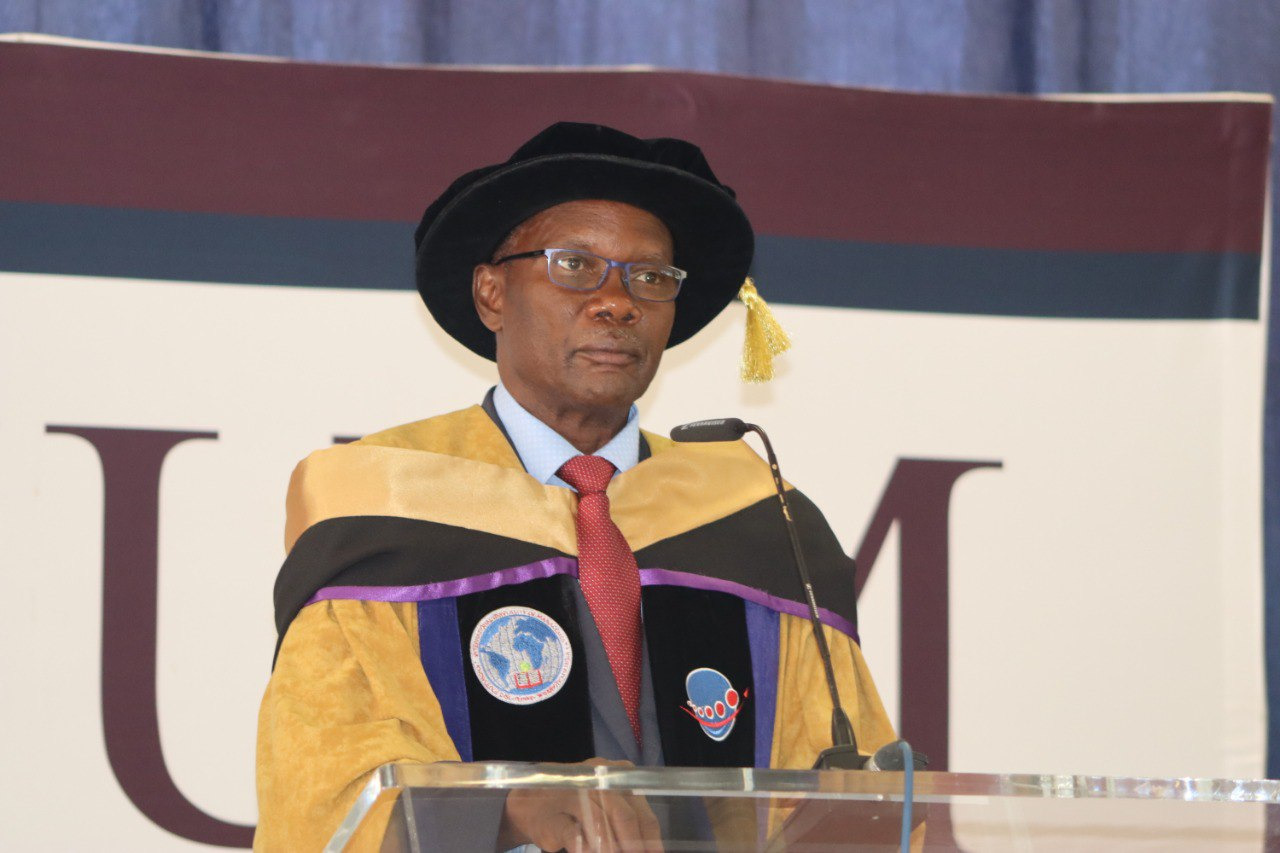The 19th instalment of the Dr Theo-Ben Gurirab lecture series held at Swakopmund on Thursday showcased an optimistic vision for the Erongo region as a significant player in intra-African trade under the African Continental Free Trade Area (AfCFTA) agreement.
This year’s theme was ‘How Can the AfCFTA Benefit the Erongo region to be the Preferred Gateway to Africa and the World at Large”.
The AfCFTA agreement has been operational since January 2021 and ranks among the world’s most significant free trade zones, aiming to unite African Union member states into a single, hurdle-free market that stimulates intra-African trade, supports value-added production, and bolsters continental-wide economic integration.
Its impact could be profound in the Erongo region, which boasts the port of Walvis Bay.
In her keynote address, Namibia’s deputy prime minister and minister of international relations and cooperation, Netumbo Nandi-Ndaitwah, said the AfCFTA has transformative potential, and acknowledged the significant possibilities for the Erongo region.
Nandi-Ndaitwah, whose speech was read by her ministerial deputy, Jennely Matundu, drew attention to the AfCFTA’s promotion of economic diversification, as the agreement “facilitates trade in a wide range of goods and services”.
“This diversification is vital for the Erongo region, traditionally reliant on the mining and fishing sectors. This added capacity has the potential to attract larger volumes of goods to Namibia and facilitates smoother trade within the region,” she said.
Erongo Regional Electricity Distributor (Erongored) chief executive officer (CEO) Immanuel Tino !Hanabeb highlighted the paradox of Africa’s ‘energy poverty’ despite its rich resources.
He said to continue progress towards comprehensive electricity access, ongoing investment is needed, as well as regional integration and the elimination of trade barriers, which the AfCFTA could facilitate.
!Hanabeb stressed the importance of tackling Namibia’s economic challenges.
He expressed his optimism for the AfCFTA as a potential solution, advocating the introduction of a common currency for intra-Africa trade to reduce currency exchange risks.
The CEO of the Namibian Ports Authority, Andrew Kanime, expressed concerns about the challenges obstructing intra-Africa trade, such as red tape, tariff barriers, and non-tariff barriers.
He highlighted the debilitating high shipping rates within the continent, constraining trade growth.
The AfCFTA, he believes, offers a significant opportunity to improve these dynamics by eliminating tariffs on goods traded between member states, enhancing trade volumes within Africa, and serving as a conduit for regional integration.
Moreover, Kanime pointed out the difficulties of moving goods from landlocked countries to ports.
He said the AfCFTA could be a catalyst to overcome these barriers.
GIZ Namibia project leader of the UN Sustainable Development Goals Initiative John Steytler said the idea of a free trade area did not start five or 10 years ago.
He said a common market is a profound form of integration, encompassing both goods and digital services.
“Some of these services you don’t have to deliver with a truck. You can deliver it with the click of a button,” he said.
Steytler said he appreciated Namibia’s swift action in ratifying the AfCFTA and urged other countries to follow suit, but cautioned that without sound industrial policies, free trade agreements would not yield the expected benefits.
“We should look at why, after 15 years of free trade in our subregion, we are not seeing the benefits of intra-trade,” he said.
Steytler urged the Namibian authorities to expedite the development of the country’s industrial policy and underscored the necessity of competitiveness among enterprises.
Steytler referred to the fourth National Development Plan’s focus on making Namibia a logistics hub.
“Namibia should be the gateway, but where does that gateway start? If you have a gateway and there’s a portal, the portal of the gateway is the Erongo region,” he said.
Logistics hub manager of the Walvis Corridor Group Gilbert Boois lauded the government’s investment in road infrastructure post-independence and praised the Logistics Hub Master Plan introduced in 2012.
However, he said Namibia’s border infrastructure is “completely inadequate” and urged for the establishment of one-stop border posts and the modernisation of facilities.
Boois said the Erongo region, with its transport corridors and support, is “well-positioned to be the gateway in terms of facilitating this kind of trade”.
Stay informed with The Namibian – your source for credible journalism. Get in-depth reporting and opinions for
only N$85 a month. Invest in journalism, invest in democracy –
Subscribe Now!






